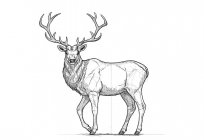Now - 09:50:21
The dispute about the truth in the play "the lower depths" by M. Gorky
The genre of the play by Maxim Gorky “bottom” can be defined as a philosophical drama. In this work, the writer managed to raise many problematic issues about man and the meaning of his existence. However, the dispute about the truth in the play “bottom” was the key.

History
The Play was written in 1902. This time is characterized by a serious economic crisis, which due to the closure of the factories workers were out of work, and the peasants were forced to beg and beg. All of these people, and with them the state, were at the bottom of life. To reflect the degree of decline, the Maxim Gorky made its heroes representatives of all segments of the population. It's the Baron, became an adventurer, a former Actor, a prostitute, a mechanic, a thief, a shoemaker, peddler, Keeper of a rooming house, a police officer.
And it was among this decadence and poverty are set key eternal questions of life. And in the heart of the conflict lay the dispute about the truth in the play “bottom”. This philosophical problem has long become intractable for Russian literature, for it was taken from Pushkin, Lermontov, Dostoevsky, Tolstoy, Chekhov and many others. Bitter but not at all frightened of this situation, and he has created a work of art, devoid of didacticism and moralizing. The viewer is at liberty to make his choice, after hearing the various viewpoints expressed by the characters.
Dispute about the truth

The play «bottom», as mentioned above, Bitter is not just depicted the terrible reality, the main for a writer are the answers to major philosophical questions. And in the end he manages to create an innovative product that had no equal in the history of literature. At first glance, the narrative seems disjointed, plotless and fragmented, but gradually all the pieces of the puzzle fit, and the viewer turns clash of heroes, each of which is a bearer of his truth.
Recommended
LP - a woman or a man, and is it important?
Those who have ever bothered to become acquainted with the works of the magic of the singer LP, was irrevocably in love with her amazing charisma, emancipation and fascinating game now popular on the ukulele tool. Her real fans have stopped to wonder...
The Song "Gibraltar-Labrador". Meanings and images
The Song "Gibraltar-Labrador" Vyacheslav Butusov became known to the General public in 1997. She became part of the sound track of the famous film by Alexei Balabanov, "Brother 2". Today it listens to the second generation of fans of Russian rock. In...
Ewan McGregor: filmography, biography actor
Audiences love films with participation of actors of the ordinary. So in the eyes of many was Ewan McGregor. His filmography includes more than sixty works, with diverse and multifaceted. Evan with equal success, delves into the images of rich and po...
The Multifaceted, ambiguous and inexhaustible a topic as an argument about truth in the play “bottom”. The table, which could be for greater understanding, would include three characters: Bubnova, Onions and Satin. These characters are hot discussions about the necessity of truth. Realizing the impossibility of answering this question, Bitter puts into the mouths of these heroes of different opinions, which is tantamount Ravnopraviye for the viewer. It is impossible to determine the position of the author, therefore, these three critics are treated differently, and there is still no consensus on whose point of view on truth is correct.
Drums
Getting into a debate about truth in the play "On bottom" of the drums is of the opinion that the key facts. He doesn't believe in higher powers and high destiny of man. Man is born and lives only to die: “All the way: be born, live, die. And I'll die… you… Why sorry…” This character is hopelessly desperate in life and sees nothing joyful in the future. Truth for him is that people can not resist the circumstance and cruelty of the world.

For Bubnova lies is unacceptable and incomprehensible, he believes that we ought to speak only the truth: «And why do people love to lie?”; “In my opinion, get the whole truth as it is!” He openly, without constraint expressed an opinion without looking at the others. Philosophy Bubnova truthful and ruthless to the man, he sees no point in helping one's neighbor and care about it.
Luke
For Luke the main thing is not the truth, and consolation. In an effort to bring to the hopelessness of the everyday life of the inhabitants of the rooming house at least some sense, it gives them false hope. His help is a lie. Luke understands people and knows what everyone needs, on this basis gives a promises. So, he tells the dying Anna that after the death of her tranquility, the Actor inspires hope for recovery from alcoholism, Ashes promises a better life in Siberia.

Luke is now one of the key figures in this issue, as the dispute about the truth in the play “bottom”. Replicas of his compassionate, calm, but not a word of truth. This image is one of the most controversial in the drama. For a long time literary critics appreciate him only on the negative side, but today, many see in the actions of Luke and the positive moments. His lies consolation of the weak, unable to resist the cruelty of reality. The philosophy of this character in the kindness: “People can be good to teach... Yet believed the man — lived, and lost faith — and hanged himself". Indicative in this respect is the story of how the old man saved two thieves when she treated them kindly. Truth bows in pity for the man and desire to give him hope, even illusory, at best, which could help to live.
Satin
Sateen is considered the main enemy of Luke. These two characters are main dispute about the truth in the play “bottom”. Quotes Sateen contrast sharply with the statements of Luke: "False & ndash; religion of the slaves”, “the Truth – God is a free man!”

Sateen is a lie is unacceptable, as in man he sees the power, durability and the ability to change everything. Pity and compassion are meaningless, people do not need them. This character says the famous monologue about the man-God: “There are only people, all the rest — the work of his hands and his brain! It — great! It sounds — good!”
Unlike Bubnov, recognizing only the truth and denying the lie, Sateen respects people, believes in them.
Conclusion
Thus, the dispute about the truth in the play “bottom” is plot -. Bitter does not give a clear resolution of this conflict to determine who is right, needs every viewer for themselves. However, it should be noted that the final monologue of Satin is heard at the same time a hymn to man and a call to action to change the appalling reality.
Article in other languages:
BE: https://tostpost.com/be/mastactva-zabavy/14490-sprechka-ab-pra-dze-p-ese-na-dne-m-gorkaga.html
PL: https://tostpost.com/pl/sztuka-i-rozrywka/14488-sp-r-o-prawdzie-w-sztuce-na-dnie-m-gorkiego.html
TR: https://tostpost.com/tr/sanat-ve-e-lence/14495-anla-mazl-k-asl-nda-oyunda-alt-m-gorki.html

Alin Trodden - author of the article, editor
"Hi, I'm Alin Trodden. I write texts, read books, and look for impressions. And I'm not bad at telling you about it. I am always happy to participate in interesting projects."
Related News
The image of childhood - the cat Matroskin. Who voiced the character, and for that we love him?
Who lived in Soviet times, he is still nostalgic of those years. Why is this happening? Yes, because the government cared about each person. The food was no harmful additives - only natural fabrics, the furniture-quality wood. Was...
How to draw a reindeer with a pencil in stages
the Deer is a symbol of autumn, a time when timid males of this species become real kings of the forest with a crown of horns on his head. One of the most powerful species is the red deer. It is not as big as moose, but no less ma...
Flavius Josephus: biography, personal life, photos
In ' 37, when in Rome recently to the throne, Gaius Caligula, was born in Judea Josephus. Is the name – the Roman version, which he adopted much later. At birth, the same baby was named Yosef Ben Mattityahu.OriginsHe belonge...
Painting by Rubens "the descent from the cross" – a religious penance
Painting by Rubens “the descent from the cross"(1612 -1914 years) – the second of the great altarpieces of the painter, which was written for the Cathedral of our lady in Antwerp.Historical piecethe Work is compos...
"Strijonok Squeaking": a brief summary for the reader of the diary story and the main idea
the Story “Strijonok Creaking”, an outline for the reader of the diary which is the subject of this review-this famous work for children by the famous Soviet writer V. P. Astafiev. This book is very touching and at the...
The book "call of the wild": a brief summary
Read the full “call of the wild”! Brief contents – a surrogate, a pathetic fake. All the same as if you ate a sandwich with margarine instead of bread with butter and cheese. Without stopping, for three hours you...






















Comments (0)
This article has no comment, be the first!